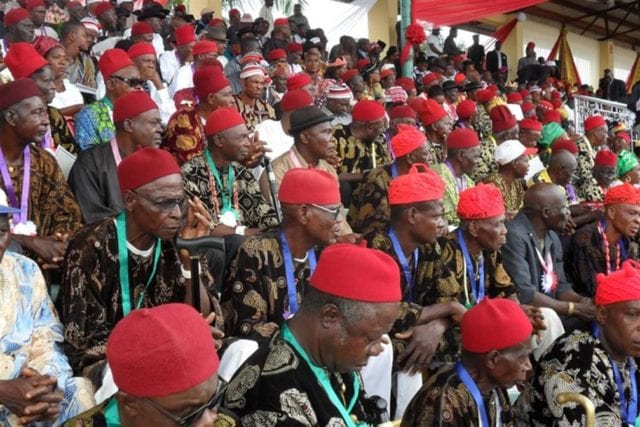Who says the incessant cries about Igbo marginalization in Nigeria is unfounded? By Benjamin Obiajulu Aduba
“I sincerely believe that the incessant cries about Igbo marginalization in Nigeria is unfounded” – Ola Kassim
Mr. Kassim in a well written article (On Feb 17, 2020, at 3:43 PM,) wrote the above. He went to try to prove the impossible, that the Igbo is not marginalized except for the period 1967-1970 (the war period). He cited examples: The Igbo are doing just as well as other ethnic groups;
The Igbo are found in almost every village, town and city outside of the SE where they ply their trades; work in all professions for which they are qualified, live and raise their children; have been in every government since the war; have a small percentage of their mega rich, the ordinarily rich and the comfortable ones among them who breathe the same air as the ever dwindling and struggling no of the middle class and a mass of poor people; thanks to their hard work, the Igbo own more than 2/3 of the privately owned properties in Abuja; The Igbo also own residential and commercial real estate properties in Lagos, Port Harcourt, and many other major cities in Nigeria; etc.
Mr. Kassim concluded by stating that “Marginalized and oppressed peoples throughout the world are usually not granted free access to live anywhere they want in their countries.”
The examples cited by Mr. Kassim would look like true. When the Igbo cry about marginalization what they actually mean is marginalization by the federal government. Let’s see how:
The SE zone has only 5 states as compared to 6 and 7 states in other zones; has just 15 senators as compared with 18-21 in other zones out of 106 members; has 43 representatives out of 360; has 5 governors out of 36; the lowest number by dollars and by counts of all federal infrastructure development programs including road mileage and bridges; zero police and military colleges and infrastructure; little refineries and electricity grids and pay the highest for electricity; etc.
The federal government borrows money for its development programs but invests the least in SE even though we collectively pay for the loans. 50 years after the war, the war damages have not been repaired despite the fact that billions of dollars were donated by foreign government to repair the damages. The money went to other Nigerian states that had no war damages; some state governments seized Igbo assets and did not release them and did not develop them and they went to blazes. Etc.
These are the reasons for the incessant cries about Igbo marginalization. Nigerians when they sit in a conference like in the House or the Senate agree on the marginalization principles.
But individual Nigerians once out of group welcome the Igbo in their communities. The quick recovery of the Igbo is due to individual efforts of Nigerians. The Yoruba, Hausa/Fulani, Edo, Ijaw, Efik, etc. each as individual made tremendous sacrifices to see the survival of the Igbo. My uncle had a couple of houses in Kafanchan. During the war, the tenants collected the rent from his property and after the war they handed the rents to him. He was instantly rehabilitated and he sent my cousins to America where they now are thriving. The suppliers to Igbo traders refurnished their customers with inventory without demanding credit worthiness or security deposits. My former students came looking for me and one who was in a secondary school in 1970 gave me one pound from his pocket money. The former military governor of Midwestern Nigeria, Col Ogbemudia, gave a grant to University of Nigeria. There were many benevolent acts like these.
But the Military Governor of Rivers State, Diette Spiff, seized Igbo properties in Port Harcourt and disposed them to his cronies. No compensation. And he put a Rivers’ government stamp on the act. Mr. Kassim’s treatise on the Igbo discrimination/marginalization may look good to a casual reader but there was/is structural marginalization embedded in Nigeria governance that calls for incessant marginalization calls. Until we listen to the cries and do something about them, they will be incessant.
Restructuring is possibly the only solution and many other Nigerian ethnic groups seem to be coming around to the idea.
Nigeria putting her head in the sand like the ostrich, and ignoring the reasons for the cries is not the answer.
Benjamin Obiajulu Aduba,
Boston, Massachusetts


Comments
Post a Comment